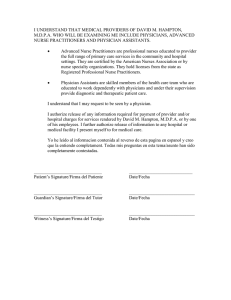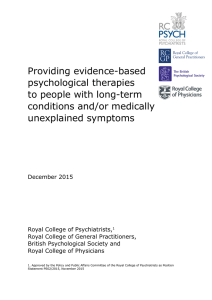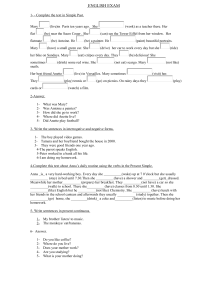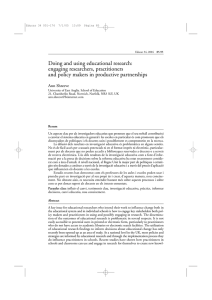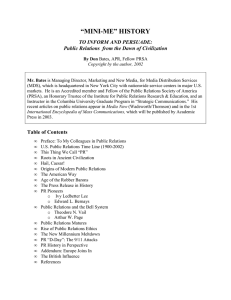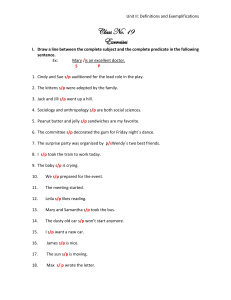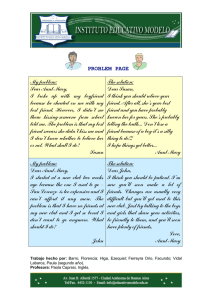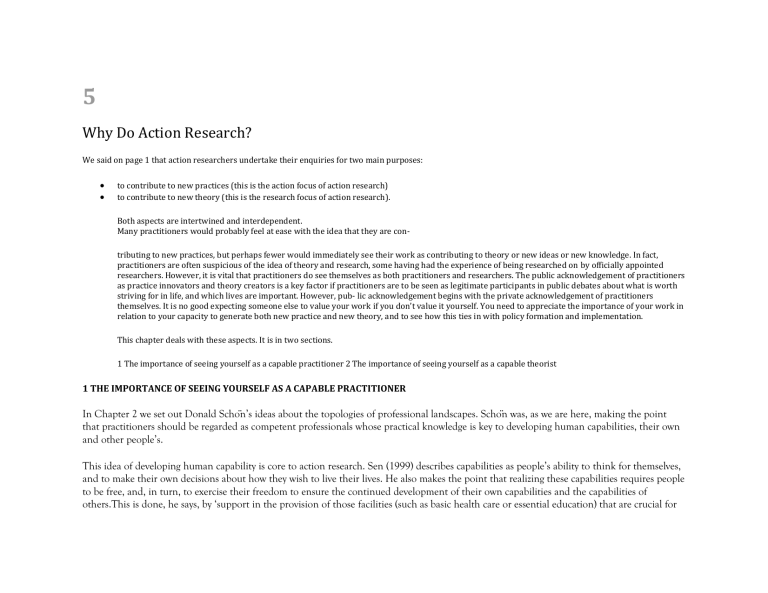
5 Why Do Action Research? We said on page 1 that action researchers undertake their enquiries for two main purposes: to contribute to new practices (this is the action focus of action research) to contribute to new theory (this is the research focus of action research). Both aspects are intertwined and interdependent. Many practitioners would probably feel at ease with the idea that they are con- tributing to new practices, but perhaps fewer would immediately see their work as contributing to theory or new ideas or new knowledge. In fact, practitioners are often suspicious of the idea of theory and research, some having had the experience of being researched on by officially appointed researchers. However, it is vital that practitioners do see themselves as both practitioners and researchers. The public acknowledgement of practitioners as practice innovators and theory creators is a key factor if practitioners are to be seen as legitimate participants in public debates about what is worth striving for in life, and which lives are important. However, pub- lic acknowledgement begins with the private acknowledgement of practitioners themselves. It is no good expecting someone else to value your work if you don’t value it yourself. You need to appreciate the importance of your work in relation to your capacity to generate both new practice and new theory, and to see how this ties in with policy formation and implementation. This chapter deals with these aspects. It is in two sections. 1 The importance of seeing yourself as a capable practitioner 2 The importance of seeing yourself as a capable theorist 1 THE IMPORTANCE OF SEEING YOURSELF AS A CAPABLE PRACTITIONER In Chapter 2 we set out Donald Schön’s ideas about the topologies of professional landscapes. Schön was, as we are here, making the point that practitioners should be regarded as competent professionals whose practical knowledge is key to developing human capabilities, their own and other people’s. This idea of developing human capability is core to action research. Sen (1999) describes capabilities as people’s ability to think for themselves, and to make their own decisions about how they wish to live their lives. He also makes the point that realizing these capabilities requires people to be free, and, in turn, to exercise their freedom to ensure the continued development of their own capabilities and the capabilities of others.This is done, he says, by ‘support in the provision of those facilities (such as basic health care or essential education) that are crucial for the formation and use of human capabilities’ (1999: 42).The task for practitioners then becomes how they can exercise their own capability to think for themselves and make decisions about their own lives, and also to encourage others to do the same. Because practitioners are also professionals, they do not assume that this is just happening, but carry out stringent tests to see whether it is.The values that inspire their work are to do with their own and other people’s capacity to think for themselves and make decisions about how they live their lives, so they check whether they really are living in the direction of those values. These ideas can provide a useful background context for starting an action enquiry. Starting an action enquiry People have different reasons for starting an action enquiry.You may feel that your current practice is really good, and other people can learn from you.You evaluate your work to explain how you can claim that this is the case. Sometimes you have a hunch and you ask, ‘I wonder what would happen if ...?’ Perhaps something could improve, and you may want to try out a new style or strategy. This means also evaluating what happens. Is it working? Should you change something? For example, as a chef you want to know how customers respond to a new menu. As a care service manager you want to evaluate the effective- ness of new work schedules.This involves asking,‘How do I understand what I am doing? How do I improve it?’, and generating evidence to support any claim that you have improved practice by studying it systematically. Sometimes, however, we do not live according to our values. Perhaps we have built up habits over the years. Perhaps, like Mary Geoghegan, a principal, you find that you tend to run business meetings yourself, even though you believe in participative working. Mary explains how she experienced herself as a living contradiction by denying her values in her practice during staff meet- ings. She introduced a rotating chair system, which meant everyone had the chance to lead. She explains (Geoghegan 2000) how some people developed confidence in their capacity for leadership, even to the extent of questioning Mary’s decisions. Mary could claim that she was living in the direction of her values, and realizing them in some cases. Often we do not live according to our values because external circumstances stop us. Margaret Cahill (2004), a special needs resource teacher, works in an education system that espouses the rhetoric of equity and entitlement, yet these values are consistently denied when some children are labelled by terms such as having ‘special educational needs’. These children are bright and articulate, many with significant visual or kinaesthetic intelligence (Gardner 1983). Because numerical and verbal intelligence are valued in the education system, and verbal and kinaesthetic intelligences are less valued, the children are relegated to lower status. Margaret shows how she lives in the direction of her values in her own class context, yet is prevented from doing so in wider contexts. The conflict of values (Sowell 1987) that such situations create can lead to emo- tional dissonance for the people involved. Margaret’s research question became, ‘How do I create contexts of fairness and democracy for the children in my care?’ (Cahill 2004). She shows how she transformed an existing situation, where marginalization was practised systematically, to one of fairness and democracy.Thousands of such stories are now available (you can access some on www.actionresearch.net and www.jeanmcniff.com).
